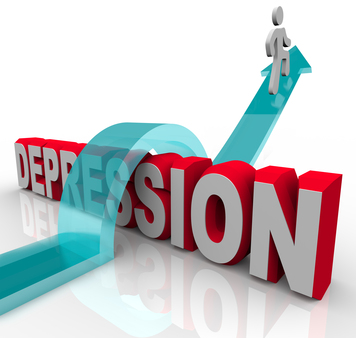Depression help
There are many sources of help available to treat depression – it is just a case of finding what works for you.
 If you are feeling suicidal, you may find it useful to talk to the Samaritans. Their telephone number is 08457 90 90 90 or they can be contacted by email at [email protected] .
If you are feeling suicidal, you may find it useful to talk to the Samaritans. Their telephone number is 08457 90 90 90 or they can be contacted by email at [email protected] .
Finding a professional
The British Association for Counselling and Psychotherapy is the UK governing body for counsellors and psychotherapists and can help you to find a therapist in your area.
The UK Council for Psychotherapy holds the national register of psychotherapists and psychotherapeutic counsellors, listing those who meet exacting standards and training requirements.
The British Psychological Society is the representative body for psychology and psychologists in the UK.
The British Association for Behavioural and Cognitive Psychotherapies is the lead organisation for cognitive behavioural therapy (CBT) in the UK.
Help from your GP
You could visit your GP and ask for advice on a way forward. GPs generally manage most cases of depression without resource to further specialist help. This could be by talking through the issues with you and giving you general guidance, or through medication. The more severe your depression is, or becomes, the more likely the GP is to advise medication or request specialist help such as from a counsellor, psychologist, psychotherapist or psychiatrist. The vast majority of people with depression will be treated in the community, but a small percentage might be admitted to hospital should the depression be considered severe enough.
One common difficulty with accessing specialist help through the NHS is obtaining this help quickly. Although the government is beginning to improve access, you may still have to wait several weeks to be seen. If you are offered therapy, this is likely to consist of 6-8 sessions over 10-12 weeks.
The people you are likely to be referred to, should you use NHS services, include:
- Counsellors: often based at your GP surgery, they will generally have a Diploma in Counselling and work with a person-centred model of therapy.
- Psychologists: educated to PhD level, with a degree in psychology and 3 years further study in their specialist area. You are likely to see them within the specialist team setting. They are trained in psychological assessment and in talking therapies.
- Psychotherapists: have generally trained for 4 years to Masters level. They will generally specialise in one form of psychotherapy though they may have training in others.
- Psychiatrists: medically trained doctors specialising in mental illness who will have completed a medical degree. They are trained in diagnosis and psychotherapy and can prescribe medication.
Literature
There are various books and CDs that can help with the process of overcoming depression. Many of these can be found in the self-help section at your local library. Useful self-help books for depression include:
Overcoming Depression by Paul Gilbert
Mind Over Mood by D Greenberger and C Padesky
The Feeling Good Handbook by David D Burns.
Further help on depression
We hope you have found this information useful, please also see:





